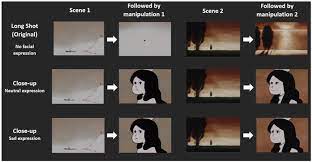Cinema, with its mesmerizing visuals and compelling narratives, has the power to transcend mere entertainment and delve into the intricate realm of human psychology. The way we respond to films, both emotionally and cognitively, offers a fascinating exploration into the psychology of film—how movies become more than just a sequence of scenes but a journey that profoundly influences our emotions and perceptions.
Emotional Impact of Movies: Stirring the Soul One of the most potent aspects of film psychology lies in the emotional impact movies have on viewers. Whether it’s the heart-wrenching drama that brings tears to our eyes or the exhilarating adventure that quickens our pulse, films have an unparalleled ability to stir a wide spectrum of emotions. This emotional resonance is a testament to the storytelling prowess of filmmakers and their capacity to create empathetic connections with the audience.
Cinematic Influence on Perception: Shaping Perspectives Movies don’t merely evoke emotions; they also shape our perceptions of the world. From cultural insights to societal norms, films act as a lens through which we view and interpret reality. The cinematic influence on perception extends beyond mere entertainment, contributing to the formation of beliefs, attitudes, and even the way we understand complex social issues.
Psychology of Storytelling: Tapping into Universal Narratives At the heart of film psychology is the psychology of storytelling. Narratives in films tap into universal themes and archetypes that resonate with the collective human experience. Whether it’s the hero’s journey or the exploration of love and loss, these storytelling elements engage our minds on a deep psychological level, triggering emotional responses that connect us to the shared narratives of humanity.
Film and Mood Regulation: Escapism and Catharsis Movies serve as a powerful tool for mood regulation. The act of watching a film allows viewers to escape from the demands of daily life, immersing themselves in alternate realities. From the cathartic release of tension in a comedy to the introspective contemplation induced by a thought-provoking drama, films provide a unique avenue for regulating and expressing emotions.
Cognitive Responses to Films: Engaging the Mind The psychological impact of films extends beyond emotions to cognitive responses. The visual and auditory stimulation in movies engages various cognitive processes, including attention, memory, and problem-solving. The intricate narratives and complex characters challenge the mind, fostering intellectual engagement that goes beyond passive observation.
Psychological Effects of Movie Genres: Crafting Experiences Different movie genres elicit distinct psychological effects. Horror films tap into our primal fears, triggering adrenaline and the fight-or-flight response. Romantic movies evoke feelings of love and connection, while action films elicit excitement and suspense. The choice of genre becomes a deliberate tool for filmmakers to craft specific psychological experiences for their audience.
Cinematic Empathy: Understanding Through Film Characters Cinematic empathy, the ability to understand and share the feelings of film characters, is a central aspect of film psychology. Viewers form emotional connections with characters, experiencing their joys and sorrows. This empathetic engagement not only enhances the viewing experience but also contributes to the development of emotional intelligence and empathy in real-life relationships.
Film and Memory Formation: The Art of Retention Movies have a unique capacity to enhance memory formation. The combination of visuals, dialogue, and music creates a multisensory experience that aids in the retention of information. Iconic scenes, memorable quotes, and the emotional impact of films become etched into our memories, shaping our cultural references and personal recollections.
Viewer Perception in Cinema: Active Participation In the psychology of film, viewers are not passive recipients but active participants in the cinematic experience. The choices made by directors, the visual aesthetics, and the narrative structures invite viewers to interpret and engage with the content actively. This participatory nature deepens the psychological connection between the audience and the film.
In conclusion, the psychology of film is a captivating exploration into the intricate ways movies influence our emotions, perceptions, and cognitive responses. From the emotional resonance of storytelling to the shaping of cultural perspectives, cinema is a potent force that goes beyond entertainment, leaving an indelible mark on the psyche of those who embark on its cinematic journeys. As we continue to be enthralled by the magic of the silver screen, the psychology of film remains a dynamic and evolving field, offering endless possibilities for understanding the complex interplay between storytelling, emotions, and the human mind.











